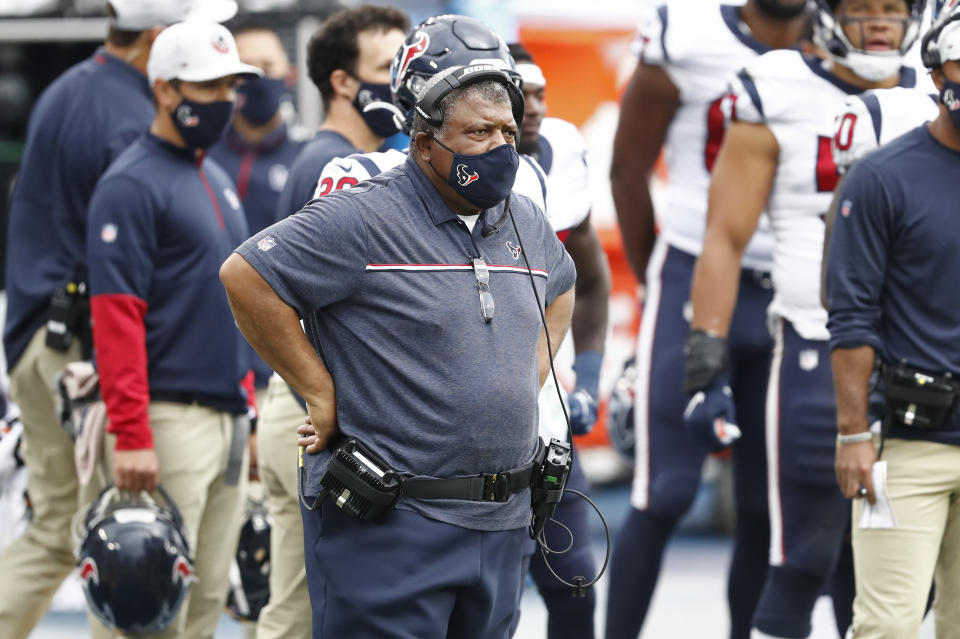2-point conversion gambles backfire in Washington, Texans losses
Go for two or kick the extra point?
In the age of analytics, it’s a hotly debated topic almost every week in the NFL.
On Sunday, two head coaches rolled the dice with two-point conversion attempts in critical fourth-quarter situations. Both conversions failed. Both teams lost.
Riverboat Ron craps out
In New York, Washington trailed the Giants 20-13 with 3:29 remaining in the fourth quarter. Kyle Allen led a 10-play, 75-yard drive that ended with a touchdown pass to Cam Sims with 36 seconds remaining.
Since the advent of the two-point conversion in the NFL in 1994, this has largely been a no-brainer situation. Kick the extra point and play for overtime.
But with advancements in analytics combined with the extra point being moved back 13 yards in 2015, taking the high-percentage extra point isn’t an automatic decision anymore, especially on the road.
It wasn’t for Washington head coach Ron Rivera, who lived up to his “Riverboat Ron” moniker and decided to go for two to take the late lead. With the two-point conversion success rate coming at just under 50 percent in the NFL, Rivera’s decision equated to a coin flip to win the game.
It didn’t work out.
Allen had nowhere to throw on the conversion attempt, and his two-point pass fell haplessly into the end-zone turf. New York held on to a 20-19 victory.
DENIED!
Watch Live: https://t.co/y8glCzPbFy pic.twitter.com/971CVeEdsI— New York Giants (@Giants) October 18, 2020
Texans’ aggression backfires
Romeo Crennel faced a similar situation against the Tennessee Titans. The interim Houston Texans head coach saw his team march 69 yards in the fourth quarter on a 6:40 drive that ended with a Deshaun Watson touchdown pass to Brandin Cooks.
The score gave the Texans a 36-29 lead with 1:50 remaining. An extra point would give the Texans an eight-point lead and force the Titans to score a touchdown and convert for two to force overtime. A two-point conversion would give the Texans a two-possession lead with less than two minutes remaining.
Crennel, like Rivera, tried to put the game out of reach right there while playing on the road. Watson’s two-point conversion pass to Randall Cobb fell incomplete, and the Texans maintained a seven-point margin.
The Titans responded with a touchdown drive that concluded with a Ryan Tannehill pass to A.J. Brown with four seconds remaining. Titans head coach Mike Vrabel did not gamble. He opted for the extra-point attempt, which Stephen Gostkowski converted to force overtime.
The Titans scored on the opening possession of overtime to win the game, 42-36.

Were they the right decisions?
Both gambles involved coaches playing for the win on the road. Both gambles came from coaches of teams with a combined two wins and virtually no hope of making the playoffs. Both gambles backfired.
Playing the individual result isn’t the proper way to look at these analytics-based decisions. These are calculated gambles that will sometimes win and sometimes lose. It’s the risk some coaches are willing to take more than others.
In these cases, both coaches came up on the wrong end. But did they make the wrong decisions?
More from Yahoo Sports:
